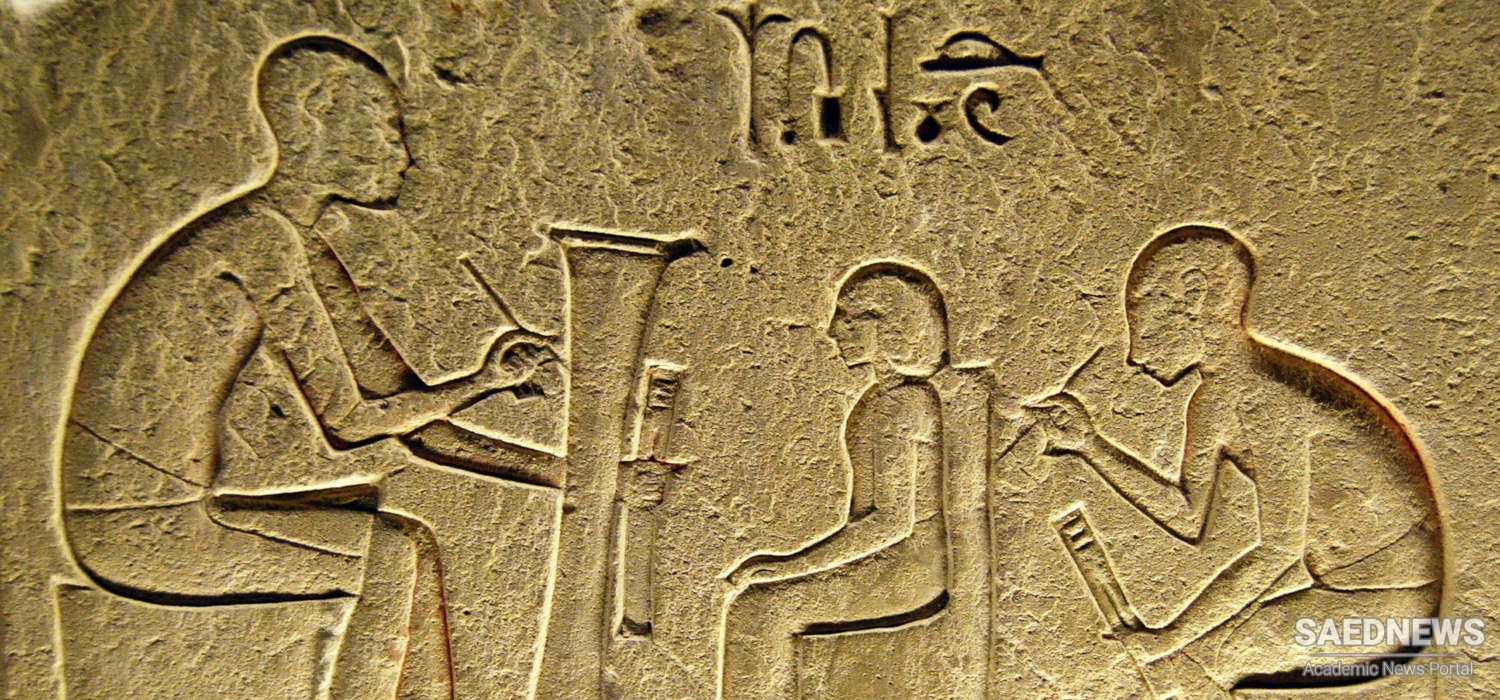That Egypt was one of the first countries on the globe which cultivated arts and sciences, is certain, from the testimony of the most ancient and respectable historians. Indeed, we have no authentic accounts of any nation upon the earth, where a regular government was established, civilization advanced, the different orders and ranks of the people settled, property ascertained, and the whole regulated by long custom, and by laws founded upon wisdom and experience, in such high antiquity as in Egypt.
For all this, we have the testimony of the Jewish legislator and historian, Moses, who allows the Egyptians to have been a powerful and polished people, before the arrival of Jacob's single family among them, consisting of only seventy persons, in order to obtain corn, during the time of a great famine, which raged throughout Syria. And even much earlier, Abraham was obliged to visit that country upon a similar occasion (g), where he found the state settled under a king, the second of whom mention is made in the sacred writings, and who had ideas of justice and rectitude, and treated him with hospitality and kindness.
That Architecture was known here in a grand and magnificent style, much earlier than in other parts of the world, is certain, from the wonderful remains of it still subsisting in the Pyramids, of which the antiquity was so remote in the days of Herodotus, the oldest historian of Greece, that he could neither discover the time of their construction, nor procure an explanation of the Hieroglyphics they contained, though he travelled through that country expressly in search of historical information.
To the Egyptians has been assigned the invention of Geometiy, an art necessary for measuring and ascertaining the portions of land belonging to each individual, after the overflowing of the Nfle, by which all boundaries were obliterated. Now as it is allowed by all antiquity that Pythagoras travelled into Egypt, and was obliged to the priests of that country for the chief part of his science, particularly in music (h), it is natural to suppose that the doctrine of Harmonics, or the geometrical mensuration of sounds, and the laws of their proportions to each other, were the invention of these early geometricians, who had brought the science of calculation to great perfection, lorig before the arrival of the Samian sage among them.
It is in vain, therefore, to endeavour to trace music from a higher source than the history of Egypt ; a country, in which all human intelligence seems to have sprung. Its ancient inhabitants boasted a much higher antiquity than those of any other country ; or, indeed, than .' has ever been granted them by any modern system of chronology ; for from the time of Osiris to Alexander the Great, they counted ten thousand years. However, there are no annals of their history, or computations of time, which do not allow them an extreme high antiquity : those who strictly adhere to the Hebrew chronology, are obliged to it, for the reasons assigned above ; and the followers of other systems can find no transactions concerning any other countries prior to those recorded of the Egyptians ; for they were a great people long before the use of letters was known, till which period, they had no other memorials of times past than Hieroglyphics, which being, at first, vague and fanciful, must soon have grown out of use and unintelligible, when the more simple, certain, and expeditious method of conveying their transactions and thoughts to distant places and times, was agreed upon, by writing.


 Folk Music in Early Twentieth Century
Folk Music in Early Twentieth Century














































